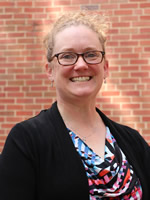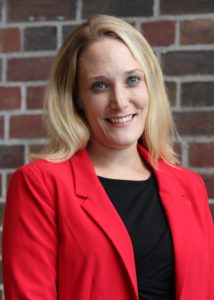 Hadley Bachman, Family Engagement Research Manager, CETE
Hadley Bachman, Family Engagement Research Manager, CETEHadley Bachman: SPDG – Family Educator Collaboration Through a Multi-Tiered Approach – Year 3 (FY25) $50,000
 Hadley Bachman, Family Engagement Research Manager, CETE
Hadley Bachman, Family Engagement Research Manager, CETECollege of Education and Human Ecology
 Hadley Bachman, Family Engagement Research Manager, CETE
Hadley Bachman, Family Engagement Research Manager, CETE Rachel Kopec, Assistant Professor, Department of Human SciencesRachel Kopec
Rachel Kopec, Assistant Professor, Department of Human SciencesRachel Kopec Christopher Zirkle, Associate Professor, Department of Educational StudiesChristopher Zirkle
Christopher Zirkle, Associate Professor, Department of Educational StudiesChristopher Zirkle Jay Plasman, Assistant Professor, Department of Educational StudiesJay Plas
Jay Plasman, Assistant Professor, Department of Educational StudiesJay Plas Danene Fast, Assistant Professor, Clinical, Department of Teaching and Learning
Danene Fast, Assistant Professor, Clinical, Department of Teaching and Learning Barbara Boone, Program Director of Family Engagement, CETE
Barbara Boone, Program Director of Family Engagement, CETE Donald Fuzer, Early Head Start Principal Investigator
Donald Fuzer, Early Head Start Principal InvestigatorThe Ohio State University’s Early Head Start Partnership Program provides high-quality early childhood education for children birth through age four who live in households experiencing poverty. We also provide comprehensive support to families in a two-generational approach that supports families in socio-economic mobility. The funds from this expansion will enable 189 Head Start slots to be added to the program, which currently serves 263 Columbus children and families enrolled in Early Head Start, a more than 70% increase in children served.
More information: https://sfc.osu.edu/2024/08/27/new-grant-expands-access-to-high-quality-early-education-for-more-central-ohio-families/
 Shayne Piasta, Professor of Literacies, Literatures, and Language ArtsShayne Piasta
Shayne Piasta, Professor of Literacies, Literatures, and Language ArtsShayne PiastaReading difficulties continue to be a pervasive public health issue. Many children, particularly those from marginalized populations, experience reading difficulties due to underdeveloped phonological awareness – and, specifically, phonemic awareness. Our long-term goal is to optimize phonological awareness intervention as a means of preventing reading difficulties and disparities. Our short-term goal is to complete two randomized controlled trials that inform such optimization through addressing current scientific controversies around the content, timing, and goals of phonological awareness intervention.
 Jamie O'Leary, Associate Director of Policy & External Affairs, CCEC
Jamie O'Leary, Associate Director of Policy & External Affairs, CCEC Sarah Lang, Assistant Professor, Human Development and Family Science
Sarah Lang, Assistant Professor, Human Development and Family ScienceOffice of Research, Innovation and Collaboration (ORIC)
153 Arps Hall
1945 N. High St.
Columbus, OH 43210
8 a.m. to 5 p.m.
Monday–Friday
Phone: (614) 247-2412
Email: EHE-office_of_research@osu.edu